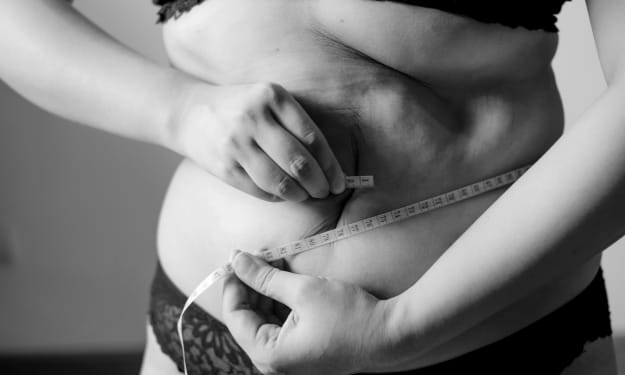Content warning
This story may contain sensitive material or discuss topics that some readers may find distressing. Reader discretion is advised. The views and opinions expressed in this story are those of the author and do not necessarily reflect the official policy or position of Vocal.
Retaining Independence In Marriage And Relationships
It Is Healthy

When my husband first asked me to marry him, I told him,
"Marriage is a prison sentence, I'll never do it."
I had stuck with this same thought for years.
I had been brought up around others who held on to the old traditions of
Women should do all the housework.
You must respect and honor your husband no matter what.
I had completely different beliefs that didn't sit well with some people. In my eyes, yes marriage was about love and respect, but it was also about being treated as an equal regardless of gender.
I am bisexual, so I could have just as easily married a woman as I did a man.
I often wonder if the perceptions of these people would have remained the same if I had married a woman.
I don't think that it helps either partner to retain their independence when one gender is relied on to do certain tasks in the house just because they are male or female.
Think about it, what would those men or women do if they held on to that belief, and suddenly became single?
You might say 'That is different.'
It isn't. The only difference would be, that you'd have to do it yourself.
You still have to manage money, find work, do chores, DIY, deal with bills, and in some cases deal with the children if you are a single parent.
You can't choose which gender does what if you are single, so why do it if you are married?
I and my husband have been married since June 25th, 1999.
We play an equal part in everything.
One could be doing the laundry, while the other is building, or you may find us decorating and dealing with the bills together.
The same goes for shopping, polishing, cleaning floors, amongst other tasks.
My husband used to work shifts including nights many years ago, and on those days I didn't mind taking control of things on the homefront while he rested and had his tea when he came home.
However, some days my husband would come home, have his tea, shower, and rest for a while, then before I could stop him, he would head into the kitchen to wash up without being asked, and sometimes without me knowing.
He was single himself for a while, and he had to run a flat as well as work.
I wasn't used to a man who would take part in housework. In my previous relationships, I was often left to do it all, and even one of my ex's parents would insist that I did it all; even at a time when I had just given birth, and was sore with stitches.
There was one other problem;
I was conditioned to do it all in the way they/he did things. There was no room to be independent or use my way of doing things. If I did, it was never good enough, and I'd be faced with a lot of severe abuse.
It took me years to unlearn this behavior, and when I married, I found it very difficult to ask my husband to do even the smallest of things, such as making me a cup of coffee or tea.
Me and my husband went on to have more children, and I stressed myself out by making one big mistake that took a huge toll on my mental health.
I wouldn't allow any time for myself, and I often made my husband feel bad because I refused to let him take over so that I could breathe.
I had been taught that everything had to be done my way, which is an unhealthy way of looking at marriage or any relationship.
It became so bad, that I had to check everything my husband did, and it would land me in tears if it wasn't to my standard.
I remember back in 1999 when we managed to get my two children from a previous relationship, home from their carers. I was assessed for my parenting by an independent assessor.
The assessor noticed that if my husband put things away in a way that did not meet my expectations, I would become extremely emotional.
He explained to me that even as a couple, we all have different ways of doing things and that learning to accept that and make it ok was healthy because it meant that we were accepting each other's differences.
It took a lot out of me to learn to approach things in this way because I remembered the abusive treatment from the past that I would have received for daring to allow it, or even ask for help when I needed it.
Eventually, I learned that it was ok. So what if my husband folded towels differently from me, the main thing was that he did it, and he did it without asking me.
Asking for help with household chores took some time because I had always been seen as the one responsible for all of them in the past. I hesitated before asking because there was always a fear of criticism or being hit for it.
The more I worked on these problems, the safer I started to feel when it came to asking for help.
I came to understand that retaining independence in marriage or any relationship was healthy, and I found myself feeling happier for allowing my husband to share the load.
Another difficulty that I had to deal with was that I felt that I wasn't allowed to work, have hobbies, or do training that would help me build up my writing career.
People in my past pulled working women who were parents apart. They felt that we were the ones who should stay at home and look after the children.
They were wrong for teaching me that.
As I started to feel better, I started to socialize more, and I was surprised to see many partners whether married or not working and raising the children together. They felt that they were better able to provide their children with healthier futures, and those who were single said that working and training helped them to feel more productive, and more confident, and gave them more self-esteem.
I decided to see whether I could feel better by doing some work myself. I started by taking up some voluntary work for a short while, but I left because there were safety issues at the workplace that were not resolved, though I did take up some other voluntary positions for a few years.
I felt better about myself like I was doing something for me
and, I felt more independent by doing it.
These positions involved championing mental health, and health services. I still do that when I get time because it enabled me to build strength, resilience, independence, and confidence, and it taught me that I was capable of doing other things out of my marriage.
I was able to find a part of me that had been missing for a long time. That part of me was the part that could be by herself, and do things for herself.
I also learned that retaining independence in marriage and relationships was important. I became less dependent on others, and more dependent on myself to get things done, and I learned to have a life outside of my marriage while still maintaining a healthy balance.
It is important to make certain decisions together when you are married or a couple, but you don't have to tailbone each other in everything.
It is important to still be an individual in your own right, and do your own thing; even having a set of friends outside the marriage can be healthy because that is your own life. Commitment is important, but you should never have to do things in a certain way, just to satisfy your partner.
If a partner truly loves you and wants to be with you; he/she will accept you and your differences just the way they are.
About the Creator
Carol Townend
Fiction, Horror, Sex, Love, Mental Health, Children's fiction and more. You'll find many stories in my profile. I don't believe in sticking with one Niche! I write, but I also read a lot too.
Enjoyed the story? Support the Creator.
Subscribe for free to receive all their stories in your feed. You could also pledge your support or give them a one-off tip, letting them know you appreciate their work.






Comments
There are no comments for this story
Be the first to respond and start the conversation.